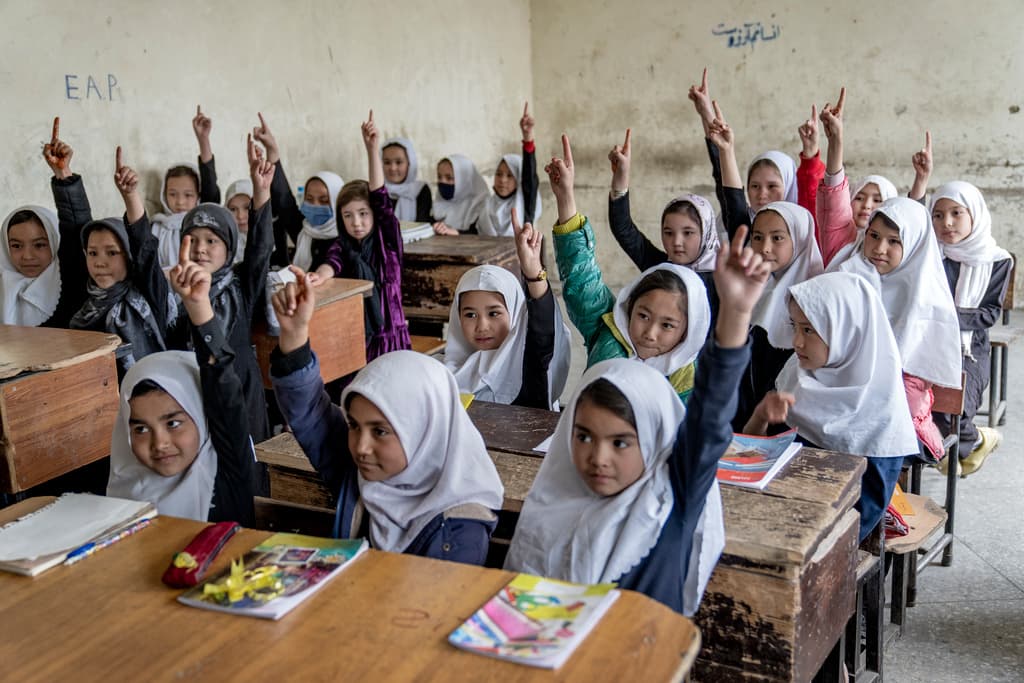In March, a new school year started in Afghanistan, where girls are not welcome to school after sixth grade. All according to the Taliban movement's extreme interpretation of Islam.
13-year-old Setayesh Sahibzada in Kabul finished sixth grade last winter.
I cannot stand on my own feet. I wanted to become a teacher, but now I cannot study, I cannot go to school, she said then to the news agency AP, well aware that she probably will not receive any further education.
Girls who do not attend school are at increased risk of child labor and child marriage, according to aid organizations.
Selling daughters
To alleviate the severe economic situation, poor parents are selling their daughters into early marriage. As women, they then do not have the right to leave their homes without male accompaniment and in most cases do not have the right to work or contribute to society in other ways.
Babuna was previously a teacher in the Panjwai district.
When the Taliban came, they fired me and closed our school, she says in the UN project "After August", which documents Afghan women's testimonies.
Now she teaches 25 students at home, despite the ban.
Since the Taliban came, our economic situation has deteriorated. I teach girls at different times, so they don't realize it's a home school. We have talked to the village women and they are all cooperating with us. They said that when I think it's suitable, they will send their daughters.
"Marriage is not a choice"
A change does not seem to be forthcoming for the over one million girls directly affected by the education ban. But the restrictions also have major consequences for other parts of society.
"The consequences of the ban affect more than the girls themselves. It exacerbates the ongoing humanitarian crisis and has serious consequences for Afghanistan's economy and development," said Unicef chief Catherine Russell in a statement in June.
Mahnaz, who previously studied law and political science at the university, had her dreams crushed after the Taliban returned to power. She tells UN Women that she screamed out loud when she was engaged and forced into marriage.
Many of my friends have suffered similar fates, given up hope and married against their will. For all girls who have not been able to complete their education, marriage is not a choice but a forced reality, she says.
The Taliban movement's ideology combines an extreme and fundamentalist interpretation of Islam with the ancient cultural code of Pashtunwali, named after the ethnic group Pashtuns who form the Taliban's backbone.
Formally, the movement was born in 1994, but its foundation was laid earlier in the Pakistani refugee camps where many Afghans fled from the Soviet invasion in 1979.
In 1996, the movement conquered the capital Kabul. It controlled large parts of the country until the US-led invasion in 2001, only to regain power in a lightning-fast offensive on August 15, 2021, after the US forces withdrew.
The Taliban's rule is described as conservative, brutal, and arbitrary. Just like during their first time in power, the Taliban now rule with their interpretation of Islamic Sharia laws, which in practice means extreme oppression of women. Women have been forced out of universities and from almost all jobs, music has been banned, and public executions and flogging have been reintroduced.
The cultural heritage has, however, been spared so far, unlike during the previous Taliban rule. Then, large quantities of invaluable museum artifacts were destroyed, as well as, to the world's dismay, the famous stone Buddhas from the 5th century in the Bamiyan Valley.






